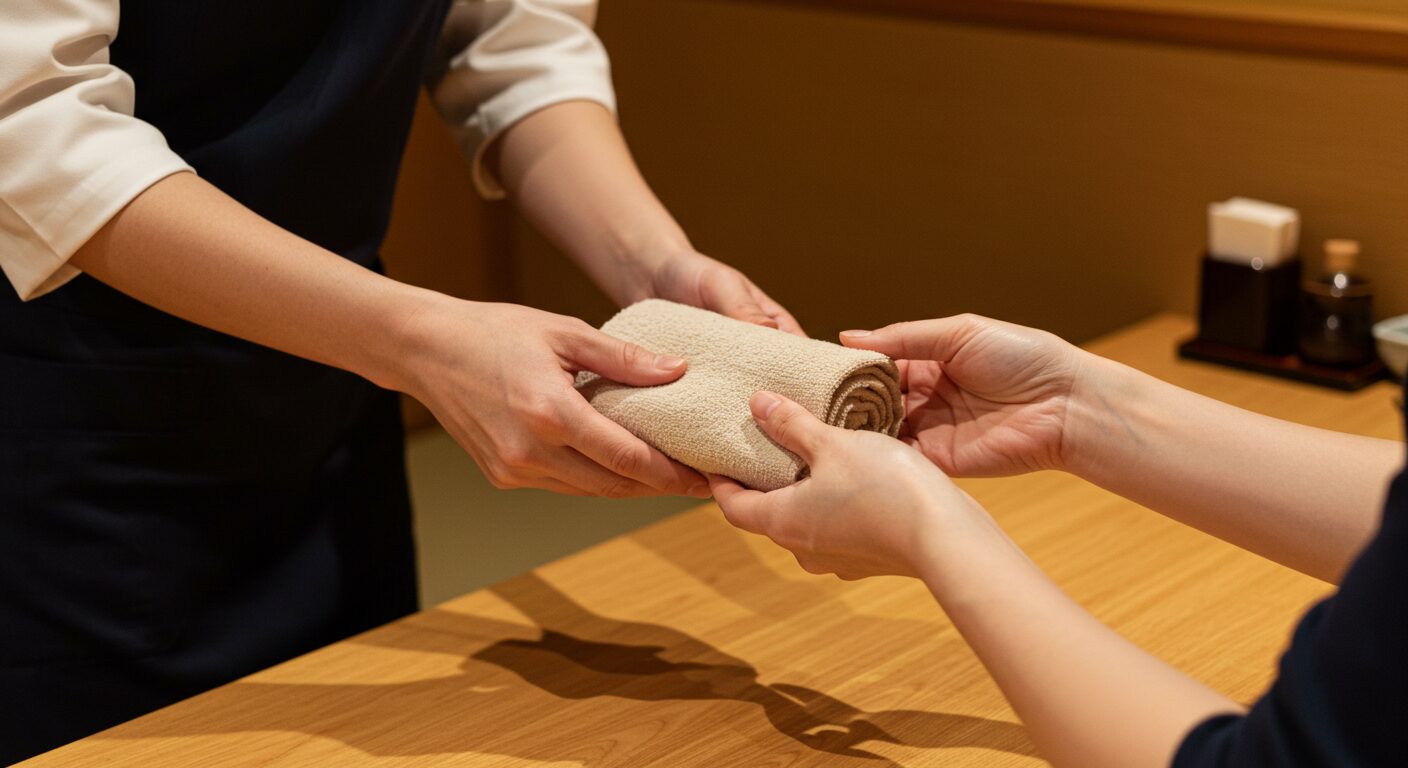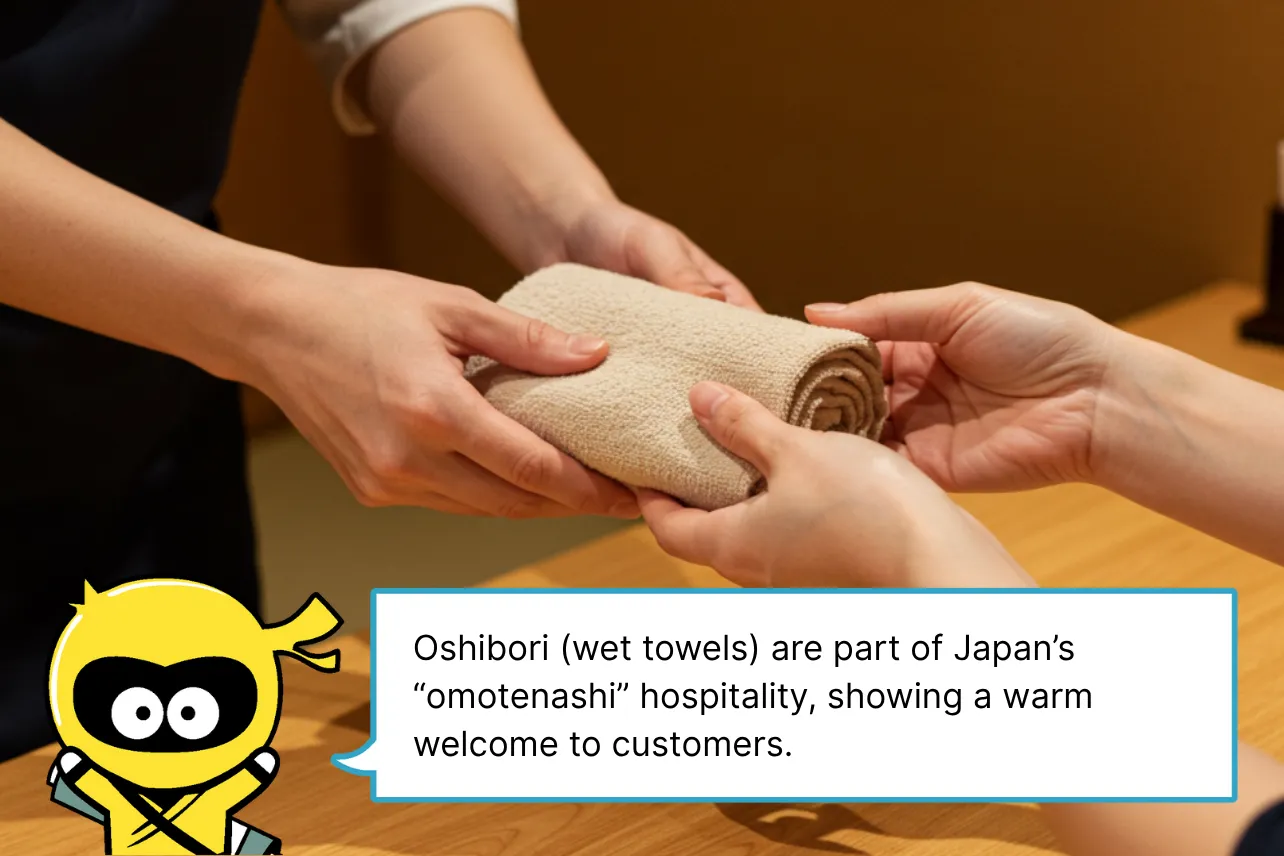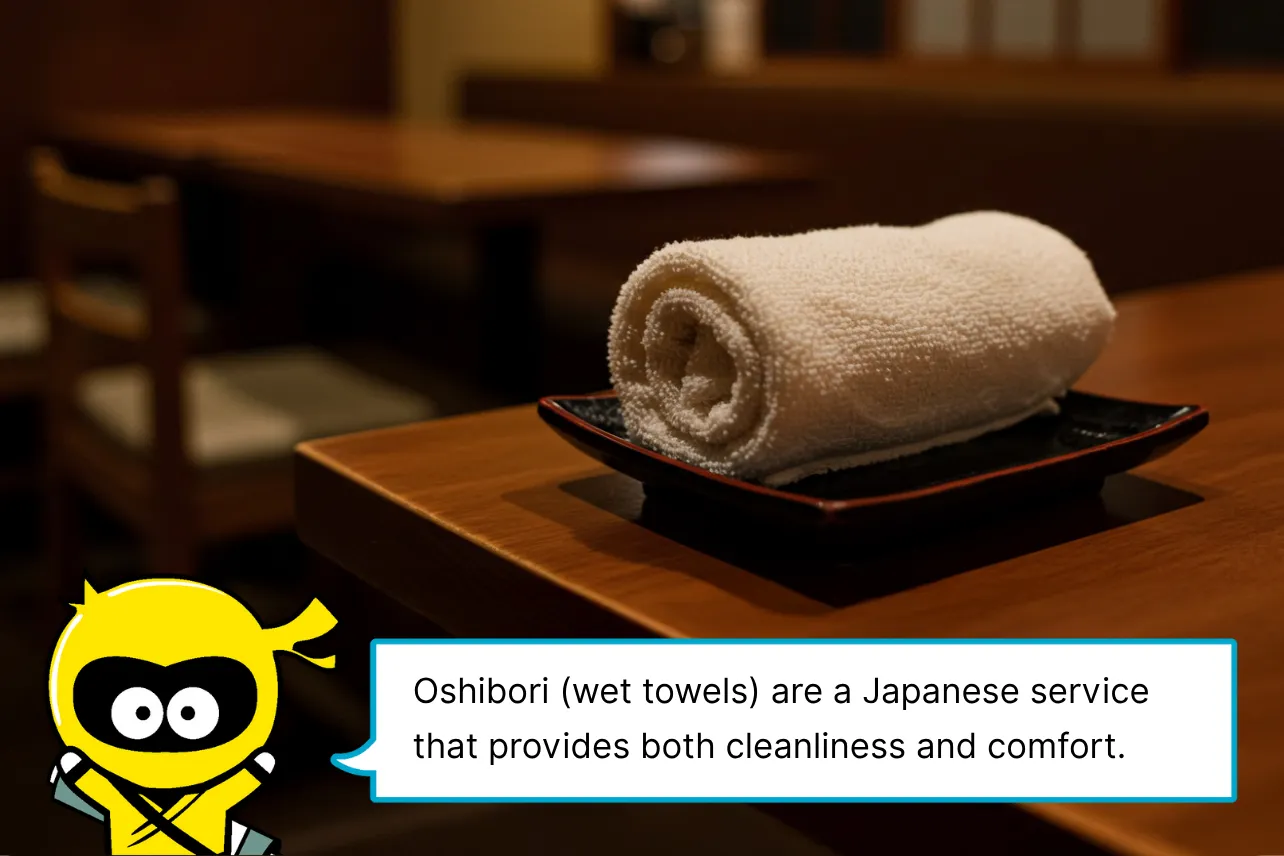

Why Are Oshibori Towels Offered in Japanese Restaurants?


In Japan, it’s common to receive an *oshibori* — a wet hand towel — right after being seated at a restaurant. More than just a tool for cleanliness, it’s a symbol of hospitality and gratitude, expressing a heartfelt “thank you for coming.” By encouraging guests to clean their hands before eating, restaurants create a comfortable and hygienic environment. This thoughtful gesture, rarely seen abroad, often surprises and delights first-time visitors to Japan.
The Role of Oshibori: Cleanliness and Comfort


While the main purpose of an *oshibori* is to clean your hands, its function goes beyond hygiene. In summer, you’re handed a chilled towel; in winter, a warm one — offering both refreshment and relaxation. This small touch reflects Japan’s meticulous attention to guest comfort and is a hallmark of the country’s exceptional service standards. For many foreign travelers, this simple act leaves a lasting impression of Japan’s service culture.
Can You Use Oshibori on Your Face or Neck?
Some travelers are seen using *oshibori* to wipe their face or neck, but in Japan, this is generally considered poor etiquette. While a few locals may not mind, most Japanese people see the towel as intended strictly for hand use. In formal settings — such as fine dining or business meals — wiping your face may be seen as inappropriate. Understanding these cultural nuances can help you navigate Japan more smoothly and respectfully.
You might be interested in this
Oshibori: A Symbol of Omotenashi, the Spirit of Japanese Hospitality
Each *oshibori* embodies Japan’s spirit of *omotenashi* — the art of anticipating guests’ needs before they’re even voiced. From ensuring clean hands to providing relaxation and comfort, this simple towel reflects Japan’s deep-rooted hospitality culture. Unlike in many other countries where such services are self-serve or paid, Japan’s thoughtful, free *oshibori* makes dining out a uniquely memorable experience for international visitors.
Common Reactions from Foreign Visitors Experiencing Oshibori Culture
Many foreign travelers are surprised to receive a free wet towel when dining in Japan. Questions like “Why is this free?” or “Why do they give one every time?” are common. Some restaurants even offer reusable cloth towels, and the temperature changes with the seasons — warm in winter, cool in summer. These small but meaningful gestures reflect Japan’s culture of cleanliness and attentiveness. Experiencing *oshibori* for the first time is often a highlight of a trip to Japan.




